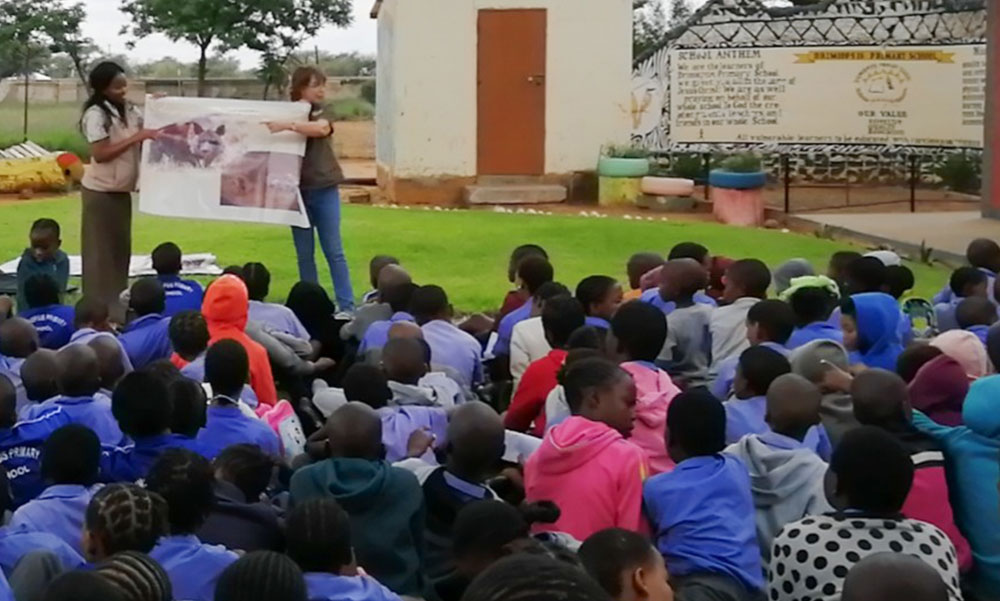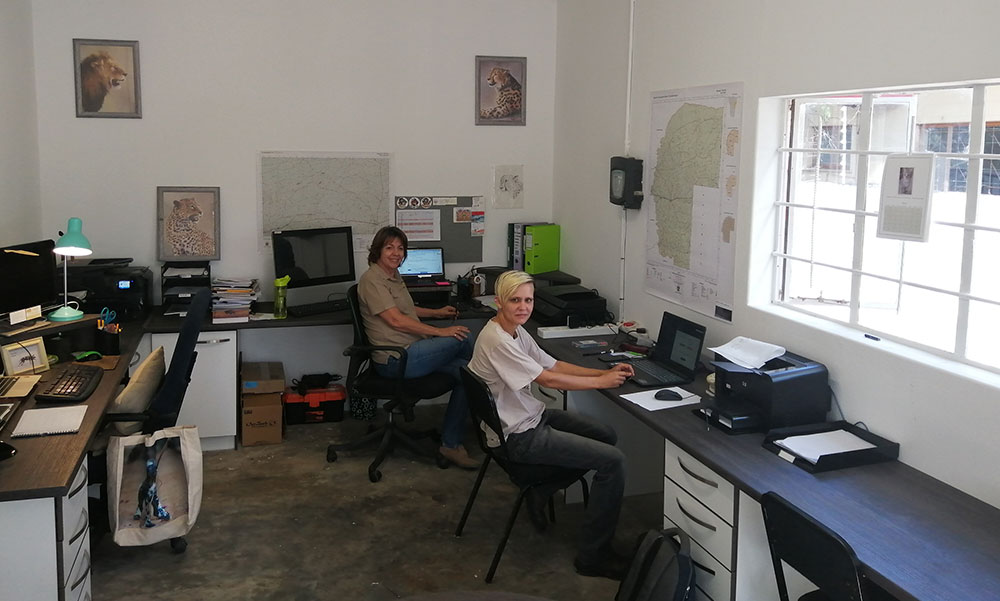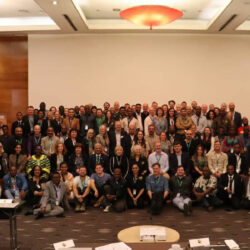Cheetah Conservation Fund Establishes Carnivore Conflict Field Station in Eastern Namibia
-

- by CCF Staff March 23, 2020
MEDIA CONTACTS:
Dr Laurie Marker, director@cheetah.org or +264 81 124 7887
Susan Yannetti, susan@cheetah.org or +12027167756
Cheetah Conservation Fund Establishes Carnivore Conflict Field Station in Eastern Namibia
OTJIWARONGO, Namibia – 23 March 2020 – Driven by the need to serve remote communities far from its International Field Research & Education Centre in Otjiwarongo, Cheetah Conservation Fund (CCF) today announced the establishment of a field station in the eastern part of Namibia. Located in Gobabis, the main farming town in the Omaheke Region, the field station is strategically situated, accessible to the surrounding farms and the Otjinene and Okakarara communal communities. The focal areas border each another and consist of freehold, resettled and communal farms. The new field station is known as CCF East – Carnivore Conflict Field Station.
CCF decided to create a base in the east after noticing an increase in conflict with livestock and game farmers towards both cheetahs and African wild dogs due to severe drought during the past couple of years. Both CCF research and farmer reports indicate a decline of cheetahs in the country. CCF attributes this decline to multiple factors, including bush encroachment in the north central parts of the country, fragmented habitat, and an increased number of leopards with reports of leopards killing cheetah and competing in their territories. Livestock have been severely affected by the drought as farmers have had to look for grazing further and further away from protective kraals and homesteads, and in a weakened state, livestock become easier targets for predators. Due to the competition for the grassland for the livestock, wildlife numbers have been reduced by the farming communities. In 2019, President Hage Geingob declared a National State of Emergency because of Namibia’s drought.
With a noticeable increase of human-wildlife conflict and lethal persecution of predators, CCF has received a higher number of orphaned cubs from the Omaheke Region. Fourteen adult and orphaned cheetah cubs were brought to CCF Centre by the Ministry of Environment and Tourism (MET) over the past three years. Some may be released into reserves, but the majority came to CCF too young and will never be released due to habituation. They will remain at the CCF Centre and be cared for the rest of their lives, living testaments to the plight of the species.
During this same period, MET brought three litters of orphaned African wild dog pups from the eastern communal areas to CCF for care and rehabilitation. In the Okakarara communal conservancies and north eastern areas of the Omaheke region, farmers experience conflict with the African wild dogs, which continues to be a concern as this species is critically endangered and severely persecuted and killed by farmers.
“We are excited about our new field station and the support we can provide to the farmers to help with the long-term survival of cheetah, African wild dogs and other carnivores that share the landscape in eastern Namibia. CCF’s Future Farmers of Africa training programmes can help with the management of livestock, wildlife and grazing lands to help reduce conflict with predators”, said Dr Laurie Marker, CCF’s Founder and Executive Director.
Today fewer than 7,500 cheetahs are left in the world, with an estimated 1,500 adults and adolescents in Namibia. Less than 660 packs of African wild dogs remain in Africa, with approximately 400 mature adults in Namibia. With both species, the majority of the individuals are found outside of protected areas. Because of this, CCF believes working directly with the farming community is critical for species survival.
From this location, CCF will provide immediate support for farmers and implementation of its Future Farmers of Africa (FFA) training programmes along with human-wildlife conflict (HWC) mitigation tools. CCF teams have built relationships with farmers in this area and have begun ecological research on these carnivores to help farming communities develop a better understanding of those that are living on their lands. This knowledge will help inform the FFA trainings which aim to create a balance between wildlife and livestock farming. CCF’s environmental education programme for schools will be more active from this location soon.
Additionally, CCF operates a 24-hour farmer support hotline implemented by the Large Carnivore Association of Namibia (LCMAN). CCF is a founding member of LCMAN. CCF staff offer advice on cheetah, African wild dog, and other carnivores and provide access to a network of partner organisations to assist with HWC in different regions of Namibia with a variety of carnivore species. The public is encouraged to use this hotline service.
CCF Farmer Hotline: +264 81 227 5139
CCF’s goal with the new field station is to encourage coexistence between farmers and wildlife, so the biodiversity of the ecosystem benefits. Dr Hanlie Winterbach and Ms Nadja le Roux are CCF’s staff members coordinating the programming at CCF East – Carnivore Conflict Field Station.



Cheetah Conservation Fund
Conservation Fund (CCF) is the global leader in research and conservation of cheetahs and dedicated to saving the cheetah in the wild. Founded in 1990, CCF is an international non-profit organisation headquartered in Namibia. CCF is celebrating its 30th anniversary in 2020, making it the longest running and most successful cheetah conservation organisation.
Related Reading


